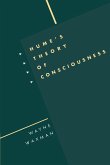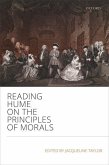This is a book about the continuing influence of Hume's ideas on moral and political philosophy. In part, it is a critical exegesis of Hume's most impressive and challenging doctrines in Book III of the Treatise of Human Nature on such topics as morals, motivation, justice, and social institutions. However, the main thrust of the argument is to throw into relief the importance of that discussion for contemporary philosophy. While the author subjects most contemporary defences of Humean doctrines to intense criticism, he also seeks to discover what versions of Hume's theories might still be defensible and viable.
Table of contents:
Acknowledgements; Introduction; Part I. The Argument for Sentimentalism: 1. A systematic ambiguity; 2. The influence argument; 3. Some bad reasons for believing the first premiss; 4. The Humean theory of motivating reasons; 5. The provocative Humean theory of motivation; Part II. The Problems and Consequences of Sentimentalism: 6. Continuity and circularity; 7. The problem with justice; 8. The conservative theory of justice; 9. Convention and institutional facts; 10. Convention and the regard to justice; Bibliography; Index.
This is a book about the continuing influence of Hume's ideas on moral and political philosophy. While the author subjects most contemporary defenses of Humean doctrines to intense criticism, he also seeks to discover what versions of Hume's theories might still be defensible and viable.
This is a book about the continuing influence of Hume's ideas on moral and political philosophy.
Hinweis: Dieser Artikel kann nur an eine deutsche Lieferadresse ausgeliefert werden.
Table of contents:
Acknowledgements; Introduction; Part I. The Argument for Sentimentalism: 1. A systematic ambiguity; 2. The influence argument; 3. Some bad reasons for believing the first premiss; 4. The Humean theory of motivating reasons; 5. The provocative Humean theory of motivation; Part II. The Problems and Consequences of Sentimentalism: 6. Continuity and circularity; 7. The problem with justice; 8. The conservative theory of justice; 9. Convention and institutional facts; 10. Convention and the regard to justice; Bibliography; Index.
This is a book about the continuing influence of Hume's ideas on moral and political philosophy. While the author subjects most contemporary defenses of Humean doctrines to intense criticism, he also seeks to discover what versions of Hume's theories might still be defensible and viable.
This is a book about the continuing influence of Hume's ideas on moral and political philosophy.
Hinweis: Dieser Artikel kann nur an eine deutsche Lieferadresse ausgeliefert werden.








